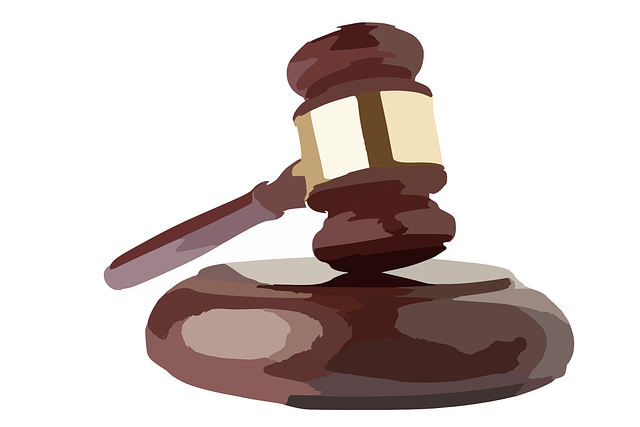Contempt of court, a serious legal issue, involves disregarding court orders or displaying disrespect for the judicial process. It includes civil and criminal contempt, with varying levels of severity and consequences. Legal enforcement is crucial, acting as a cornerstone for administering justice. This involves specialized agencies using investigative, subpoena, and enforcement powers to resolve non-compliance swiftly. Building a strong case requires meticulous preparation, gathering compelling evidence from relevant documents. Sentencing options range from fines to imprisonment, depending on the contempt's severity and local laws. Strategic legal expertise is essential throughout the process, ensuring justice while navigating complex procedures.
In the intricate landscape of legal disputes, contempt cases present unique challenges. This comprehensive guide explores the nuanced world of contempt of court, dissecting its definition and diverse types of offenses. We delve into the pivotal role of legal enforcement in resolving these cases, offering insights on building a robust case with compelling evidence and strategic legal arguments. From available remedies to sentencing options, this article navigates the complexities, empowering readers with essential knowledge for effective legal strategy in contempt proceedings. Discover the critical importance of legal enforcement in these delicate matters.
- Understanding Contempt of Court: Definition and Types of Offences
- The Role of Legal Enforcement in Resolving Contempt Cases
- Building a Strong Case: Evidence and Legal Arguments
- Available Remedies and Sentencing Options for Contempt
- Effective Legal Strategy: Navigating the Complexities of Contempt Proceedings
Understanding Contempt of Court: Definition and Types of Offences

Contempt of court is a serious legal issue that occurs when an individual or entity disregards or refuses to comply with a court order or exhibits disrespect for the judicial process. It’s a crucial aspect of legal enforcement, ensuring that parties involved in legal proceedings adhere to set rules and decisions. This can range from wilful failure to pay child support as ordered to interfering with a trial’s integrity.
There are two primary types: civil contempt and criminal contempt. Civil contempt involves non-compliance with an order designed to enforce a civil judgment, often relating to matters like failing to turn over property or pay monetary awards. Criminal contempt, on the other hand, is more severe, involving direct obstruction or defiance of court proceedings, such as disrupting a trial or refusing to testify truthfully. Both require legal counsel to navigate the complexities and potential consequences associated with these offences.
The Role of Legal Enforcement in Resolving Contempt Cases

In contempt cases, legal enforcement plays a pivotal role in ensuring justice and upholding court orders. When an individual or entity fails to comply with a court’s mandate, legal enforcement agencies step in to facilitate resolution. These agencies have the authority to investigate, serve subpoenas, and enforce court decisions, making them crucial in navigating complex legal scenarios.
Through robust legal enforcement mechanisms, contempt cases can be resolved efficiently. This includes tracking down non-compliant parties, gathering evidence, and ensuring compliance with court-ordered remedies. The expertise of legal enforcers helps streamline the process, providing a structured approach to resolving disputes and maintaining the integrity of legal proceedings.
Building a Strong Case: Evidence and Legal Arguments

Building a strong case in a contempt of court matter requires meticulous preparation and robust evidence. The first step is to gather all relevant documents, communications, and records that support your position. This includes any legal notices previously served, court orders, contracts, or agreements that are central to the dispute. Each piece of evidence should be carefully organized and indexed to facilitate a clear presentation during proceedings.
Legal arguments should be structured around specific laws and precedents relevant to the case. The party seeking enforcement must demonstrate that there has been a violation of a valid court order, highlighting the nature of the contempt and its impact. Effective legal advocacy involves articulating these points with clarity, supporting them with solid evidence, and addressing potential counterarguments. This comprehensive approach ensures a robust defense or prosecution, enhancing the chances of a favorable outcome through legal enforcement.
Available Remedies and Sentencing Options for Contempt

In contempt cases, individuals found guilty face a range of remedies and sentencing options, designed to enforce legal decisions and deter future non-compliance. These can include fines, imprisonment, or both, depending on the severity of the contempt and local laws. Legal enforcement measures play a crucial role in upholding court orders and ensuring justice is served.
The specific remedies available are tailored to the nature of the contempt. For civil contempt, non-compliance with a court order may result in fines or imprisonment until the individual obeys the order. In contrast, criminal contempt involves willful disobedience and can lead to more severe penalties, including longer prison sentences and substantial fines. Sentencing options also consider factors like the contemnor’s history, the impact of their actions, and any mitigating circumstances.
Effective Legal Strategy: Navigating the Complexities of Contempt Proceedings

Contempt cases are complex legal proceedings that require a strategic and nuanced approach. Effective legal strategy involves a deep understanding of the intricacies involved in these matters, from initial assessment to final resolution. Lawyers must be adept at interpreting court orders, identifying potential violations, and presenting compelling arguments to support their client’s position.
Navigating the complexities requires expertise in legal enforcement mechanisms, including the use of evidence, witness examination, and legal precedents. A well-crafted strategy ensures that all avenues for justice are explored, while also adhering to the stringent procedural rules associated with contempt proceedings. This meticulous approach is vital to achieving a favorable outcome and safeguarding the rights of individuals involved.
